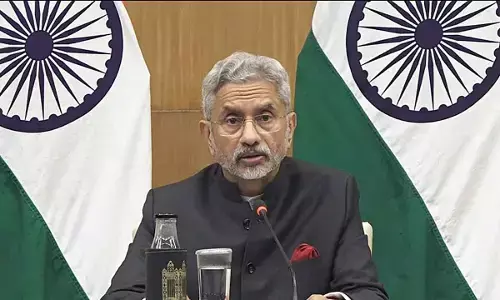How infants judge adults' language proficiency

Monolingual infants expect others to understand only one language, an assumption not held by bilingual infants, a study by researchers at New York University and McGill University has found.
Monolingual infants expect others to understand only one language, an assumption not held by bilingual infants, a study by researchers at New York University and McGill University has found.
.jpg)
"Our results not only offer insight into infants' perception of linguistic abilities but may also help us better understand whom they see as good communication partners," explained Athena Vouloumanos, associate professor in NYU's department of psychology.
To explore this, the researchers examined the responses of both monolingual and bilingual 20-month-olds as they observed a series of interactions between adults with whom the infants were unfamiliar.
Here, two adult speakers told an adult listener the location of a ball hidden inside cups using either the same (English or Spanish) or two different languages, which included English and another language (French and Spanish).
Following verbal instruction in one language, the adult always found the ball.
The researchers employed a commonly used method to measure infants' expectations: looking time.
Previous research has shown that a longer gaze indicates that infants see something they did not expect and therefore visually engage with it longer.
Their results showed that infants' expectations about whether the unfamiliar adult was monolingual or multilingual varied with the infants' own language background.
"The monolingual infants assumed that an unfamiliar person would understand only one language while bilingual infants did not, suggesting that infants do not expect all speech to convey information to all people," Vouloumanos explained.
"Knowing who might make a good communication partner may enhance learning about the many aspects of the world that we learn about from others, including our native languages," added co-author Kristine Onishi, associate professor at McGill University.
Their findings appeared in the journal Cognition.
IANS
Next Story

















